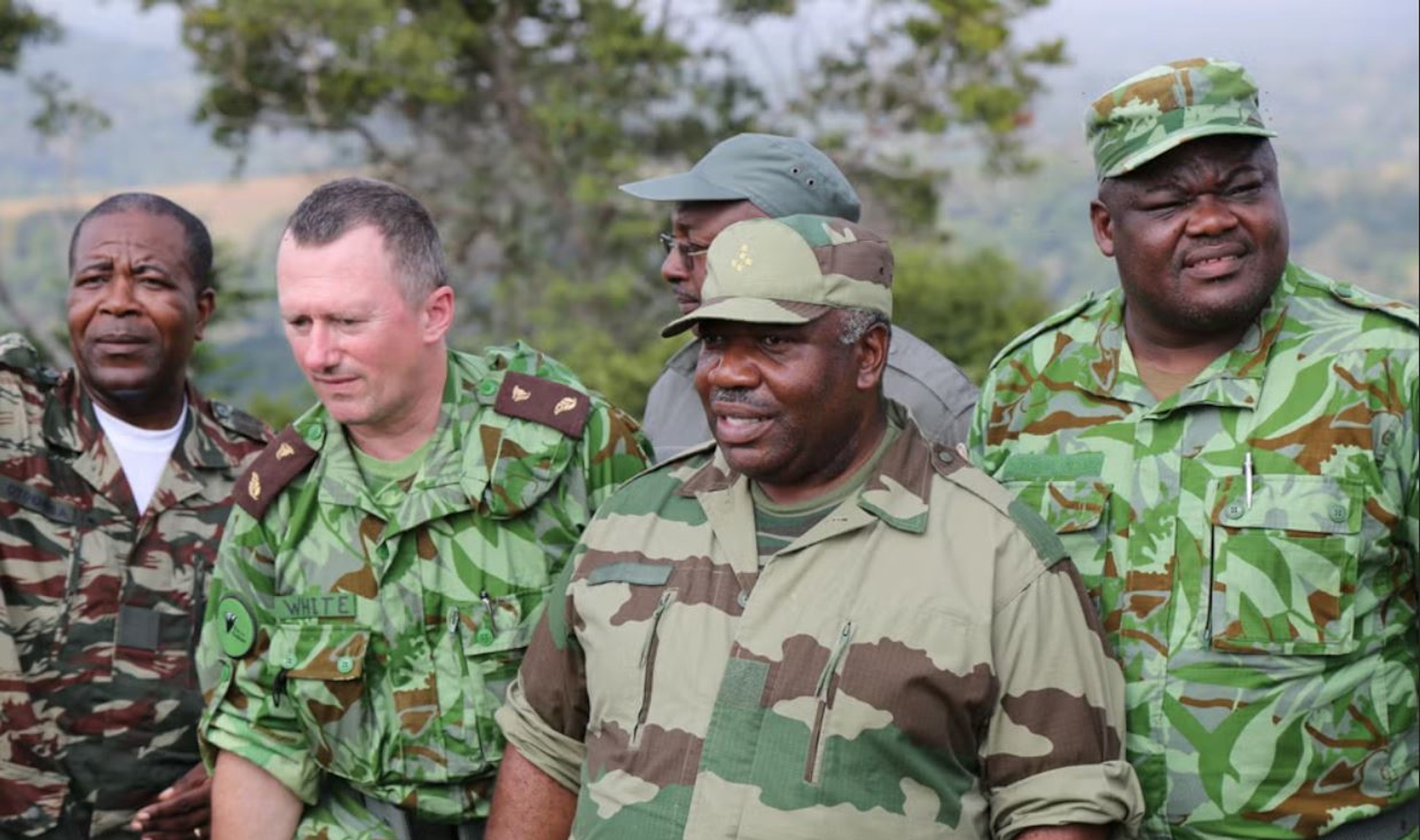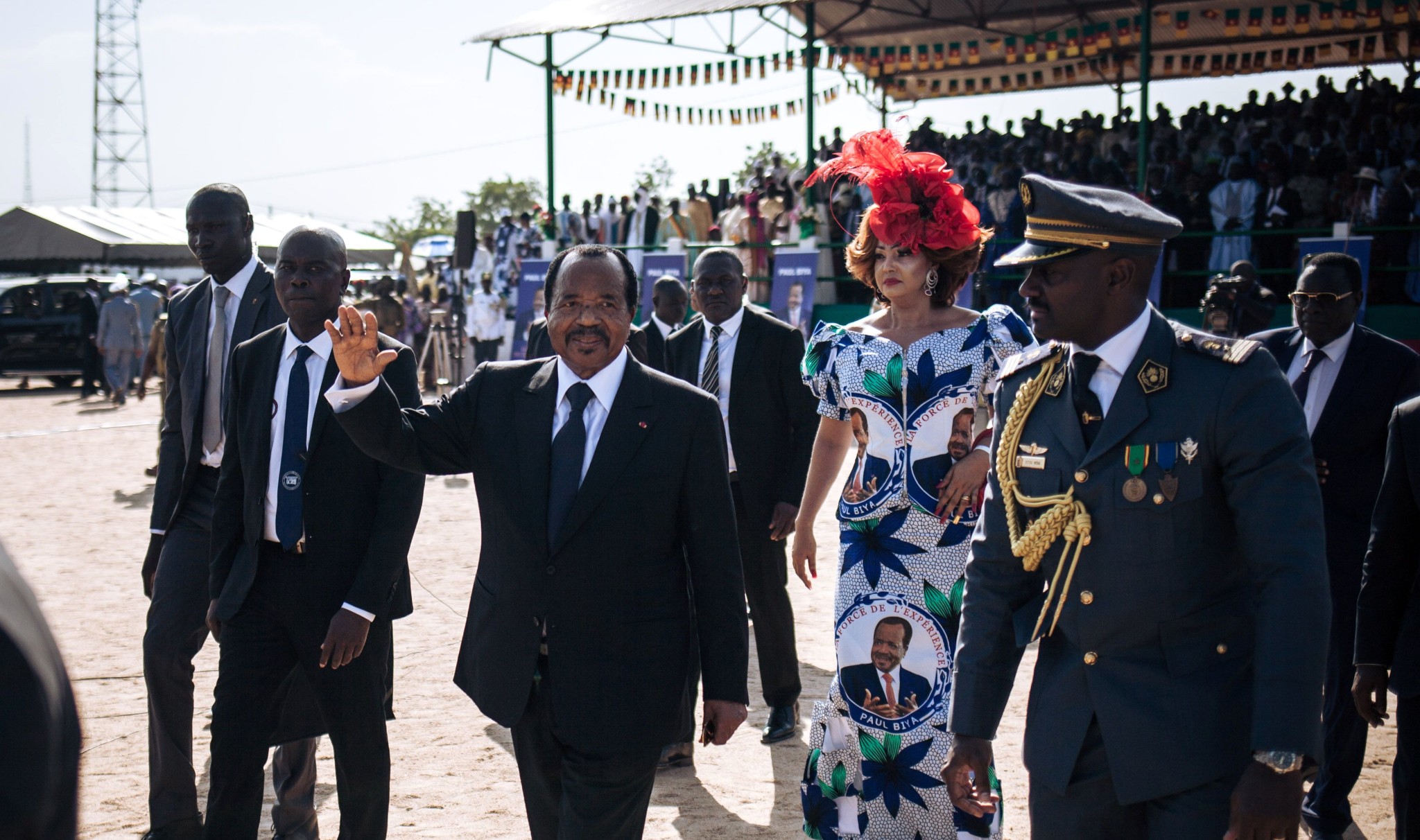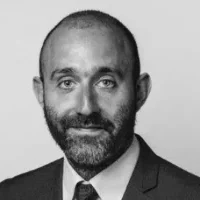An English conservationist who has served as Gabon’s environment minister since 2019 says he was blindsided by this week’s coup.
Speaking exclusively to Declassified UK from the capital of the oil-rich west African nation, Professor Lee White CBE reflected: “I did not see this coming”.
But he dismissed fears he was missing and confirmed via WhatsApp this evening: “I am fine at home in Libreville where the situation is calm.”
The military takeover has brought international focus on a country run for the last 55 years by President Ali Bongo Ondimba and his family.
Despite Bongo’s reputation for corruption and human rights abuses, White has worked closely with the regime since 2009 when he was put in charge of Gabon’s national parks agency.
Under his leadership, this quasi-military force received US and UK army training in counter-poaching, plus funding from the Prince Charles Trust.
White – often seen in camouflage uniform – always insisted he is “incorruptible”, but the same cannot be said for the ousted ruling family, who French prosecutors have charged with embezzling a €85m overseas property empire.
This criminal case in France, and Gabon’s high levels of poverty, did not deter White from campaigning for Bongo’s reelection in a sham poll held days before the coup.
He defended Bongo’s government this week, saying on Twitter it had “cut [the] internet as a precaution following some provocative statements by opposition politicians”.
White remains optimistic despite the coup, telling Declassified: “I don’t think there is any reason to panic that Gabon will turn its back on sound environmental governance – it is something that goes a lot deeper than President Ali Bongo Ondimba, thanks in great part to his leadership on the issue.”
Defence of Bongo
Even before he joined Bongo’s cabinet, White was willing to bat for the regime. When one of the authors met him in 2017, he was sitting poolside in the courtyard of the Radisson, one of Libreville’s most exclusive hotels.
There, White mounted an unapologetic defence of President Bongo, only six months after the regime had opened fire on opposition supporters following a disputed election.
He criticised the opposition candidate, Jean Ping, for wanting to cull thousands of elephants, calling him a “killer”.
Ping, a career diplomat who was once president of the UN General Assembly, had seen his supporters gunned down by Gabon’s security forces in the nights after the disputed poll.
Back then, White also painted a picture of militarised solutions to the problems of illegal logging and elephant poaching in the interior.
“Gabon has 12% of the world’s forest, 60% of the world’s forest elephants. It’s an ongoing fight. I’d say two thirds of poachers are corrupt Cameroon military with links to Pakistani mafia. We’ve killed five poachers in the last 18 months”, adding: “We never shoot first.”
Despite oil revenues of $3bn a year, the Gabonese capital is crumbling, with slums rising behind the seafront. The successive Bongo regimes presided over export growth but a third of the population of 2.5 million remain in grinding poverty.
Bongo and White committed themselves to protect the environmental diversity of the vast interior but it often seemed a project designed to greenwash a government that did so little for its citizens.
They certainly secured Western donors and admirers, including King Charles who gave Bongo a tour of Kew Gardens in 2021.
These connections may have helped the former French colony join the Commonwealth – a club for Britain’s old empire – last year.
To be eligible for membership, countries “should demonstrate commitment to democracy” – making the Bongo dynasty an odd choice for admission.
Whether that membership will be suspended in the wake of the coup remains to be seen. The group’s Secretary-General, Patricia Scotland, yesterday said the “illegal takeover of power” in Gabon was “deeply concerning”.
She called on members to “uphold the rule of law and the principles of democracy at all times”.
Additional reporting by Taimour Lay.




